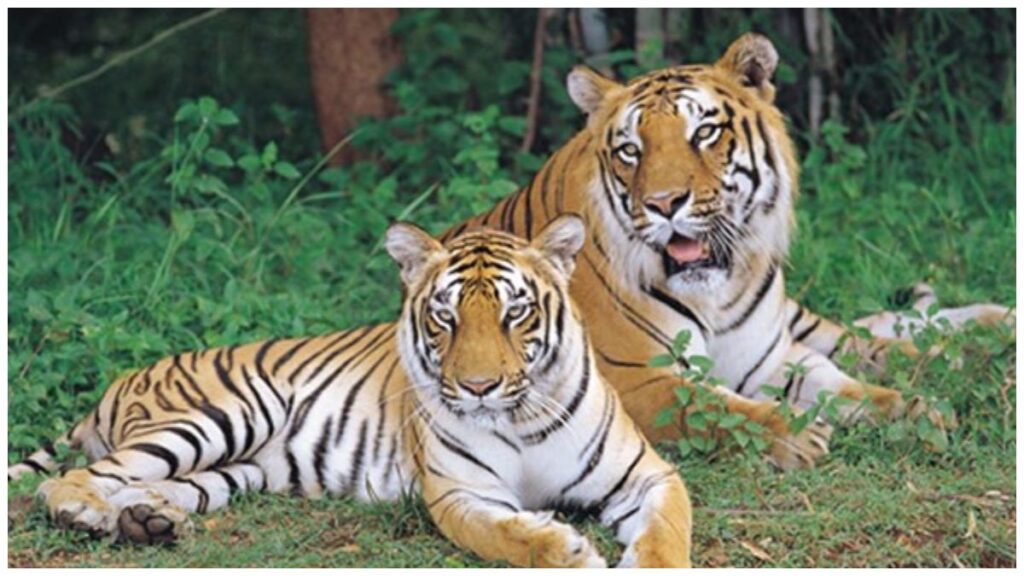Visitors to Bannerghatta Biological Park (BBP) can now experience an exciting new leopard safari and contribute to afforestation efforts, thanks to a forward-thinking initiative that blends eco-tourism with environmental conservation.
The leopard safari, covering 20 hectares of deciduous forest, offers a secure and natural habitat for both leopards and visitors. The safari area is fortified with multiple protective measures, including a railway barricade, a 4.5-meter-high chain-link fence, and 1.5-meter metal sheets installed at a 30-degree angle. These safety measures comply with the guidelines set by the central zoo authority, ensuring a secure environment for the leopards and a safe viewing experience for visitors. Currently, this section of the park is home to eight leopards, providing visitors with a rare opportunity to observe these majestic big cats in their natural habitat.
Located in Bengaluru, Bannerghatta Biological Park is the first of its kind in South India and the largest in the country. The park’s hilly terrain and lush greenery have naturally attracted leopards over the years. Officials frequently rescue leopard cubs from nearby agricultural fields, contributing to the park’s leopard population. The BBP rescue center currently houses 14 leopards, underscoring the park’s crucial role in wildlife conservation.
Leopard Safari and Afforestation Initiative

In addition to the safari, BBP authorities are promoting afforestation by offering saplings at discounted rates. This initiative aims to raise awareness about biodiversity, the importance of forests, and ecological balance. Karnataka Environment and Forest Minister Eshwar Khandre emphasized the educational aspect of this initiative.
The park recently held a groundbreaking ceremony for the construction of a skywalk and five new animal enclosures. The skywalk is designed to connect the zoo with the butterfly park, offering visitors a closer view of the tree canopy and birdlife, thereby enhancing their understanding of the park’s ecosystem.
This comprehensive approach by BBP aims to create an enriching and educational experience for visitors while promoting environmental conservation and awareness. By integrating eco-tourism with proactive conservation efforts, BBP is setting a global benchmark for wildlife parks.
Bannerghatta Biological Park (BBP) in Bengaluru, India, is a premier destination for wildlife enthusiasts and nature lovers. The park spans an expansive area of hilly terrain and lush greenery, creating a natural habitat for a diverse range of wildlife, including leopards, tigers, and elephants. Visitors can enjoy various attractions such as safaris, a butterfly park, and a zoo, providing opportunities to observe animals in their natural surroundings.
The park also engages in significant conservation efforts, rescuing and rehabilitating wildlife, and promoting afforestation. With its combination of ecological education and thrilling wildlife experiences, BBP is a model for sustainable eco-tourism.
